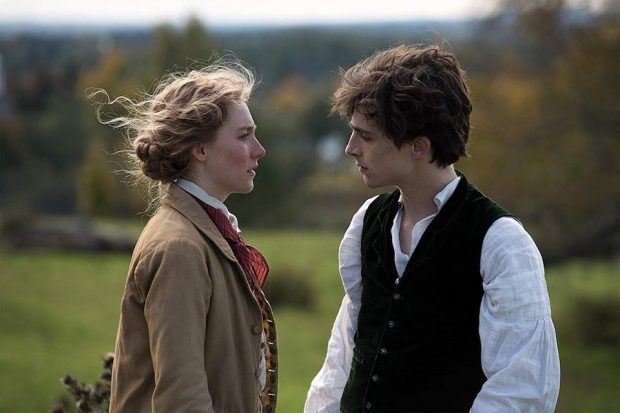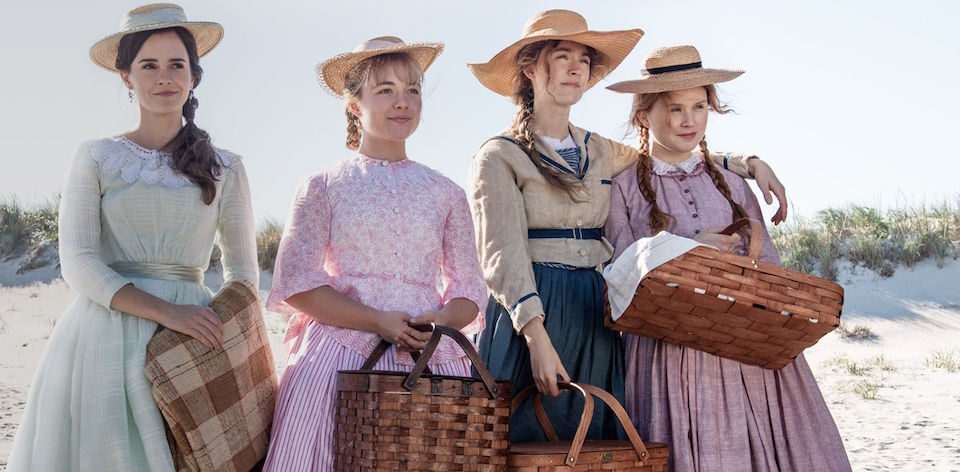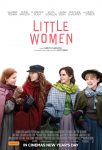Louisa May Alcott’s novels are a curious beast. Originally published in two volumes in the late 1860s, as Little Women and Good Wives (in the UK), the stories have been read as both a coming-of-age story and as a commentary on the unfair “social inferiority” of women in the mid-19th century. The beautiful thing about Greta Gerwig’s smart film is that it manages to be both things and more.
Gerwig maintains the same basic narrative that we’ve seen across seven films and dozens of TV adaptations. We follow the four March sisters – Meg (Saoirse Ronan), Jo (Emma Watson), Beth (Eliza Scanlon) and Amy (Florence Pugh) – as they journey through minor trials, social graces, sickness and romance in the aftermath of the Civil War.
Recognising that the book’s original observatory approach towards ‘simple’ people would not be palatable for younger audiences, and parts of Alcott’s novel are a slog, Gerwig’s screenplay spends more time on the story of the women after they have left home. Structurally this means lots of cutting back and forth between the time periods and ticking off the highlights of the first part of the book in flashbacks.

This allows for a bit of an attitudinal update as well, not exactly modernising the story in an anachronistic way (like Sofia Coppola’s Marie Antoinette, for example) but instead focusing on those aspects that reflect the beliefs of contemporary cinemagoers. Meg’s quest to be a published writer is a much stronger through-line here, and her various editors serve as totems of the male gatekeepers to equality. Jo and Amy’s stories contrast different expectations, with Watson’s Jo actually articulating that her choice to marry and have children is simply different and not lesser to Jo’s career.
The cast is amazing, especially Ronan as the ostensible lead. It’s like a more confident version of her Lady Bird character came back through time and was placed in Alcott’s Massachusetts. Watson’s performance is far more expected, and while she perfectly suits the role it also feels a bit of a one-note extension of the Hermione/Belle dynamic. Pugh continues a stellar year (following Fighting with My Family and Midsommar), showcasing her versatility. Scalon’s Beth, as with the source material, is mostly neglected save for a few critical scenes.
Laura Dern as the family’s matriarch is fierce, and completely commands her handful of scenes. Meryl Streep as rich Aunt March gives one of her best performances in years. Perhaps the weakest link is social media favourite Timothée Chalamet, with his central romantic figure a little too modern and out of step with the rest of the cast. Other surprises include Bob Odenkirk and an almost unrecognisable Chris Cooper as the two father figures. The latter’s relationship with Beth is both touching and heartbreaking, giving dimensionality to what could have been a throwaway narrative branch.
What’s ultimately remarkable about Gerwig’s LITTLE WOMEN is that it manages to be a faithful adaptation, filled with all the seemingly inconsequential squabbles and social follies of the book, but also a powerful statement for our century as well. The finale has its cake and eats it too, retaining Alcott’s expected denouement while acknowledging a sharply contemporary commentary on ‘traditional’ gender roles through the clever use of a metatextual bookend. It’s not just a great film adaptation, but one of the best films of the year.
2019 | US | DIRECTOR: Greta Gerwig | WRITERS: Greta Gerwig| CAST: Saoirse Ronan, Emma Watson, Florence Pugh, Eliza Scanlen, Laura Dern, Timothée Chalamet, Meryl Streep, Tracy Letts, Bob Odenkirk, Chris Cooper | DISTRIBUTOR: Sony Pictures Releasing (AUS)| RUNNING TIME: 132 minutes | RELEASE DATE: 1 January 2020 (AUS)





